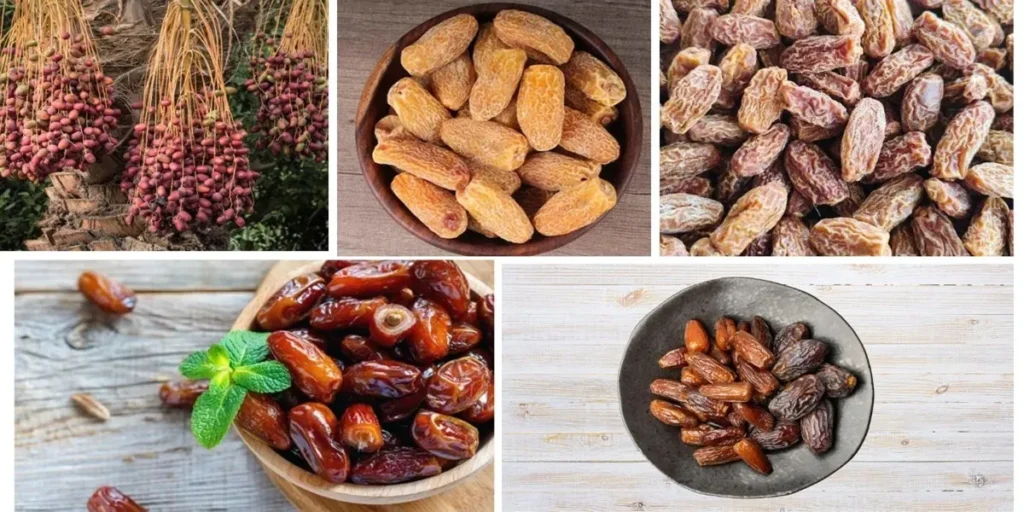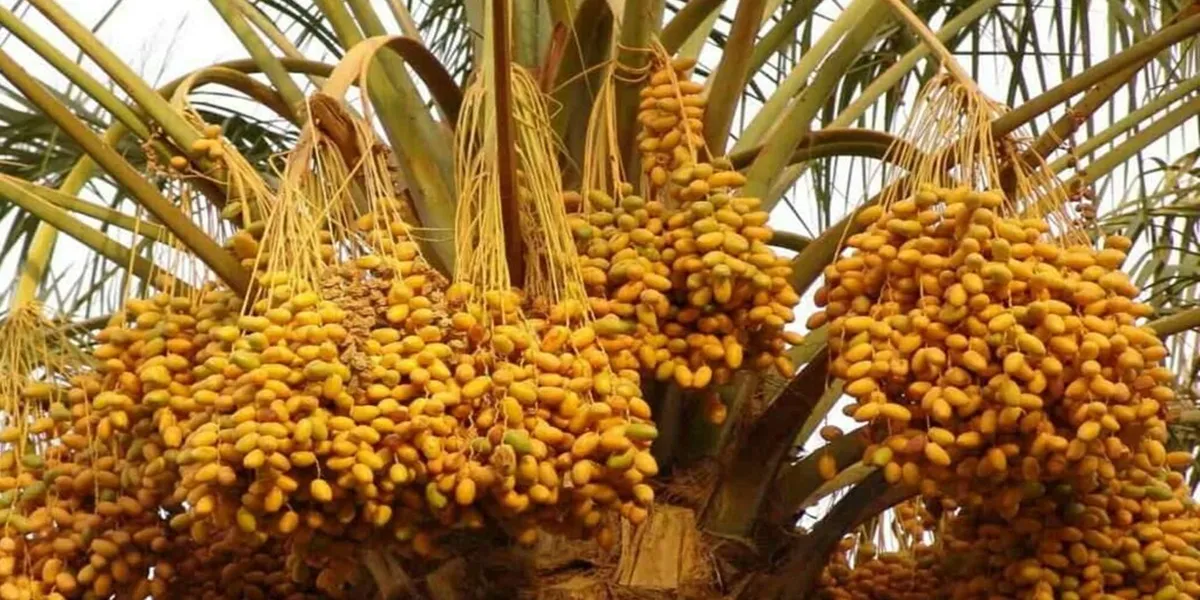When we think about superfoods, dates often stand in the spotlight as one of the most ancient yet scientifically proven treasures of nutrition. In 2025, international demand for high-quality date fruits is rising, not only for their rich taste but also for their diverse health properties backed by modern research. From natural energy boosters to being packed with antioxidants, certified date varieties are shaping the global health and wellness industry.
Different types of dates—such as Medjool, Deglet Noor, Ajwa, and Mazafati—are not just cultural delicacies; they are functional foods with roles in digestive health, cardiovascular balance, and immune system support. Each type carries its unique profile of vitamins, minerals, and natural sugars, making them a vital part of international trade.
This guide explores how certifications enhance exports while also looking at the types of date fruits, their health benefits, and their growing reputation in global markets. If you want to understand why certifications matter, how they increase trust, and which varieties hold the most potential for international buyers, keep reading—this journey will change how you see dates forever.
Why Certifications Are the New Currency in Global Date Fruit Trade
In the world of international trade, certifications have become the new form of currency, opening doors to competitive markets and elevating the reputation of exporters. Date fruits, long valued as a staple food in Middle Eastern cultures, are now gaining recognition worldwide as part of the broader category of Dried Fruits. What makes certifications so crucial in 2025 is their ability to bridge the gap between traditional agricultural practices and modern consumer demands for safety, transparency, and sustainability.
Global buyers are no longer satisfied with taste and appearance alone. They require proof that products meet international safety standards, align with ethical sourcing, and are cultivated using environmentally responsible methods. Certifications such as GlobalG.A.P, Organic EU, and Halal do more than confirm compliance; they build trust with retailers, importers, and end consumers. In fact, certified date fruits stand out as premium products in competitive global markets because they meet rising expectations for health-conscious and ethically sourced foods.
For exporters, certifications are no longer optional—they are strategic investments. A certified product signals reliability, ensures smoother entry into regulated markets, and positions exporters as trusted partners for global buyers. In this sense, certifications have become the new passport for international trade. They serve not only as a legal requirement but also as a marketing tool that enhances branding, consumer perception, and long-term loyalty.
By understanding the evolving landscape of certifications, exporters can transform dates from local commodities into global health foods. This guide explores the types of certifications, their role in consumer trust, and how they safeguard against trade barriers. Following these insights will help producers and exporters thrive in an increasingly competitive and regulated world.
Global Market Trends in Date Fruit Exports – Where Certification Makes the Difference
The international trade of date fruits has entered a transformative phase, shaped by rising consumer demand and stricter import regulations. Countries such as Saudi Arabia, Iran, Egypt, and Tunisia continue to dominate global exports, but the competitive landscape is shifting. Buyers in the European Union, North America, and Asia are prioritizing certified products, making certifications the key differentiator for exporters in 2025.
Global health trends have positioned dates as a natural alternative to processed sugars and as functional foods rich in antioxidants, fiber, and essential minerals. With the expansion of vegan, plant-based, and clean-label diets, date fruits are no longer seen only as traditional foods but as versatile ingredients for smoothies, snack bars, and natural sweeteners. Certifications such as Organic and Non-GMO are vital in these segments, as health-conscious consumers demand assurance about what they are consuming.
At the same time, sustainability has emerged as a central theme in trade. Retailers and governments are increasingly focused on products that meet environmental and ethical standards. Certifications linked to sustainable farming and fair trade practices ensure that exporters can meet these expectations and secure long-term contracts.
Certification also plays a critical role in risk management. Exporters with GlobalG.A.P or HACCP certification face fewer challenges at customs, as their products are already validated against global benchmarks. This reduces delays, prevents shipment rejections, and builds confidence with importers.
In short, the global market for date exports is evolving from volume-driven trade to quality-driven partnerships. Certification is the factor that separates successful exporters from those left behind, acting as both a shield against regulatory hurdles and a gateway to premium markets.
Key Certifications Driving Market Access in 2025 – From GlobalG.A.P to Organic EU
Accessing international markets for date fruits requires compliance with a range of certifications, each addressing different aspects of consumer trust, food safety, and sustainability. In 2025, the most influential certifications include GlobalG.A.P, Organic EU, USDA Organic, Halal, Kosher, and ISO 22000. Each one serves as a passport for exporters, allowing them to reach specific regions and customer groups.
GlobalG.A.P focuses on good agricultural practices, ensuring dates are grown, harvested, and processed under safe and environmentally responsible conditions. This certification is particularly important for European buyers who emphasize traceability and sustainability. Organic EU and USDA Organic address the growing global appetite for chemical-free, environmentally friendly products, making them essential for premium health food markets.
Meanwhile, Halal and Kosher certifications expand opportunities in the Middle East, Southeast Asia, and Jewish communities worldwide. These certifications do not only ensure religious compliance but also provide broader assurance about ethical sourcing and handling. ISO 22000 and HACCP highlight strong food safety management systems, reducing the risk of contamination and aligning with requirements from the FDA and other regulatory agencies.
The benefits of these certifications extend beyond compliance. They enhance product branding, signal high quality, and provide a competitive edge in crowded markets. Importers and retailers actively seek certified suppliers, knowing that these products reduce risk and appeal to discerning consumers.
For exporters, selecting the right mix of certifications depends on their target markets. Those aiming for Europe and North America cannot overlook Organic and GlobalG.A.P, while those entering Middle Eastern markets must prioritize Halal. By strategically combining certifications, exporters ensure maximum access and recognition in global trade.

How Certifications Boost Consumer Trust and Branding in International Markets
In today’s global food system, consumer trust is everything. Certifications transform dates from simple commodities into trusted, branded products. When buyers see labels such as Organic, Halal, or Fair Trade, they associate them with safety, authenticity, and ethical values. This psychological connection influences purchasing decisions and builds long-term loyalty.
Certified dates are not only healthier in perception but also more aligned with consumer lifestyles. For instance, organic certification assures health-conscious buyers that the product is free from synthetic chemicals, while Halal or Kosher labels guarantee compliance with faith-based dietary requirements. These certifications become part of the brand story, turning dates into premium products positioned for niche categories such as fitness nutrition, plant-based diets, or sustainable snacking.
International case studies demonstrate the impact of certifications on branding. Ajwa dates from Saudi Arabia, marketed as organic and Halal-certified, are sold as superfoods in Europe. Medjool dates from the US, with USDA Organic and Non-GMO labels, dominate the health-conscious segment in North America. Similarly, Deglet Noor from Tunisia, paired with Fair Trade certification, appeals to ethically driven European consumers.
This combination of certifications and storytelling allows exporters to elevate their brand identity. Rather than competing on price, certified exporters compete on values—health, safety, and sustainability. Certifications, therefore, are not just technical requirements but strategic branding tools.
By 2025, surveys indicate that consumers are more willing to trust and remain loyal to brands that display credible certification logos. Exporters who integrate certification into their branding strategy will continue to outperform competitors, achieving both higher visibility and stronger market presence.
Compliance with Import Regulations – Avoiding Border Rejections and Trade Barriers
One of the greatest risks exporters face is non-compliance with import regulations. Shipments of date fruits that lack proper certification or fail to meet safety standards are often rejected at borders, resulting in financial losses and damaged reputations. In 2025, strict enforcement of food safety, labeling, and sustainability standards makes certification essential for smooth market access.
The European Union enforces rigorous limits on pesticide residues and requires verification of organic claims. Products that lack valid certification cannot enter the EU market. Similarly, the United States Food and Drug Administration (FDA) mandates HACCP compliance and precise labeling, including allergen statements and nutritional information. In the Middle East and Southeast Asia, Halal certification is non-negotiable for market entry, reflecting both cultural and regulatory priorities.
Non-compliance is not limited to legal consequences. It undermines consumer trust and creates long-term barriers to re-establishing market credibility. A single shipment rejection can cost exporters years of buyer relationships. This makes proactive certification and compliance strategies critical for sustainable trade.
Exporters can avoid these risks by maintaining farm-to-shelf traceability, conducting internal audits, and partnering only with accredited certification bodies. Regular training of staff and alignment with international guidelines ensure that products consistently meet evolving regulations.
Ultimately, compliance is more than avoiding penalties—it is about safeguarding brand reputation, protecting partnerships, and ensuring continuous access to high-demand markets. In the increasingly regulated global trade environment, certifications serve as a shield against trade disruptions and an assurance of reliability for both buyers and consumers.
Certification as a Competitive Advantage – Pricing, Premium Branding, and Buyer Loyalty
In today’s global food industry, certification has evolved from being a compliance tool into a powerful competitive advantage. For date fruit exporters, the right certifications transform their products into premium offerings that stand out in international markets. This advantage extends beyond meeting regulations—it influences pricing, branding, and buyer loyalty.
Certified dates often command higher prices because consumers associate labels like Organic, Fair Trade, and Halal with superior quality, safety, and ethical sourcing. Retailers prefer certified suppliers because these products reduce risk and align with consumer expectations for health and sustainability. As a result, exporters with certifications are positioned not only to access new markets but also to secure better profit margins.
From a branding perspective, certifications act as quality seals that enhance credibility. When consumers see certification marks, they immediately connect the product with trust and transparency. Exporters can leverage this by positioning their dates as lifestyle products suitable for wellness, vegan, or ethical consumption markets. For example, organic-certified Medjool dates are marketed as natural energy boosters in health-conscious regions like North America and Europe.
Certification also strengthens buyer loyalty. Importers and retail chains value long-term partnerships with certified suppliers because they ensure consistent compliance and reduce the risk of rejected shipments. This loyalty translates into repeat contracts, expanded distribution, and stronger brand recognition.
In essence, certifications are not just about meeting minimum standards—they are strategic assets. Exporters who embrace them are better equipped to compete globally, differentiate themselves from uncertified suppliers, and establish a reputation for reliability and excellence.
Challenges and Costs of Certification for Exporters – What Producers Need to Know
While certifications provide undeniable advantages, achieving and maintaining them presents challenges that exporters must be prepared to manage. The certification process often involves financial costs, documentation requirements, and operational adjustments that can strain smaller producers.
The most common challenge is the cost of certification. Exporters must budget for initial audits, annual renewal fees, laboratory testing, and consultancy services. For small-scale producers, these expenses may seem overwhelming. However, industry experts emphasize that the long-term benefits—market access, higher demand, and brand value—often outweigh the upfront investment.
Another challenge is the complexity of documentation and compliance. Certifications such as GlobalG.A.P or ISO 22000 require detailed records of farming practices, pest control measures, storage conditions, and traceability from farm to packaging. Many producers struggle with maintaining accurate documentation, which can delay or even block certification approval.
Operational changes also play a role. Achieving certifications often requires adopting new farming techniques, upgrading facilities, or training staff. For example, organic certification demands eliminating synthetic pesticides, while HACCP implementation requires strict hygiene controls. These adjustments require time and resources, which can be challenging for exporters already managing tight schedules.
There are also risks of audit failures if exporters are unprepared. Non-compliance, even in small details, can lead to failed inspections, forcing companies to repeat the process at additional cost. To address this, many producers partner with certification consultants or industry associations to streamline the journey.
Despite the challenges, certification remains a critical investment. Exporters who approach it with proper planning, resource allocation, and expert guidance can overcome these barriers and unlock sustainable growth in international markets.
Digital Transformation of Certification in 2025 – Blockchain, Smart Labels, and AI Audits
The year 2025 marks a turning point in the certification landscape, as digital technologies revolutionize how compliance and transparency are managed. Exporters of date fruits are increasingly adopting blockchain, smart labels, and AI-driven audits to meet consumer expectations for authenticity and traceability.
Blockchain is at the heart of this transformation. By recording every step of the supply chain on an immutable digital ledger, blockchain ensures that certification claims cannot be falsified. For example, a blockchain-verified organic certification allows buyers in Europe or the US to instantly confirm that a date shipment was grown and processed under certified conditions. This transparency builds trust and reduces fraud.
Smart labels, often in the form of QR codes, are another growing trend. Consumers can scan packaging with their smartphones to access certification details, farm origins, and sustainability information. This interactive feature strengthens brand engagement and reassures buyers that the product they are holding meets global standards.
Artificial intelligence is also reshaping audits. AI-powered monitoring tools analyze real-time farm data, such as pesticide use, water consumption, or hygiene compliance, reducing reliance on manual inspections. This makes certification processes faster, more accurate, and cost-efficient. For exporters, it also means fewer delays and lower risks of failed audits.
Digital transformation is not just about efficiency—it enhances credibility. In a market where consumers value transparency as much as taste, adopting these technologies positions exporters as forward-thinking leaders. By embracing blockchain, smart labels, and AI audits, date fruit producers are future-proofing their businesses while ensuring compliance with evolving global demands.
Roadmap for Date Exporters – Step-by-Step Guide to Achieving Certification
For exporters aiming to succeed in international markets, certification is a structured journey rather than a one-time task. A clear roadmap helps producers navigate requirements, avoid costly mistakes, and build lasting credibility with global buyers.
Step 1: Market Analysis
Identify target markets and research which certifications are mandatory or preferred. For example, Organic EU is crucial for Europe, while Halal is essential for Middle Eastern and Southeast Asian markets.
Step 2: Gap Assessment
Conduct an internal review of current practices compared with certification requirements. This helps identify areas that need improvement, such as pesticide use, traceability systems, or hygiene protocols.
Step 3: Training and System Setup
Train staff on certification requirements and implement record-keeping systems. Accurate documentation of farming, processing, and storage is critical for passing audits.
Step 4: Partner with Accredited Bodies
Select a recognized certification body with international credibility. Working with accredited organizations ensures global acceptance and reduces risks of rejection.
Step 5: Pre-Audit Preparation
Run an internal audit to confirm readiness. Address any compliance gaps before scheduling the official inspection.
Step 6: Certification Audit
Host the official audit by the certification body. Ensure all documents, facilities, and processes are aligned with requirements.
Step 7: Continuous Compliance
Certification is not a one-time achievement. Exporters must maintain standards year-round, undergo annual renewals, and adapt to evolving global regulations.
Following this roadmap not only ensures successful certification but also strengthens market resilience. Exporters who integrate these steps into their operations build trust with buyers, gain easier access to premium markets, and secure long-term sustainability in the global trade of date fruits.
Conclusion Heading
Certifications: Unlocking the Future of Global Date Fruit Trade
The journey of date fruits from traditional orchards to international supermarket shelves is no longer only about taste—it’s about trust, quality, and compliance. Certifications act as a passport that allows exporters to access new markets, strengthen their branding, and highlight the proven nutritional benefits of each date variety. By meeting global standards in food safety, organic farming, and sustainability, producers ensure that their dates are not just culturally significant but also scientifically recognized as a premium health food.
Looking forward, certification will continue to evolve alongside digital innovations like blockchain and AI-driven audits. Exporters who invest in these standards today will position themselves at the forefront of tomorrow’s global trade. In other words, certifications are not just documents—they are the foundation for growth, credibility, and global recognition in the thriving date fruit industry.




